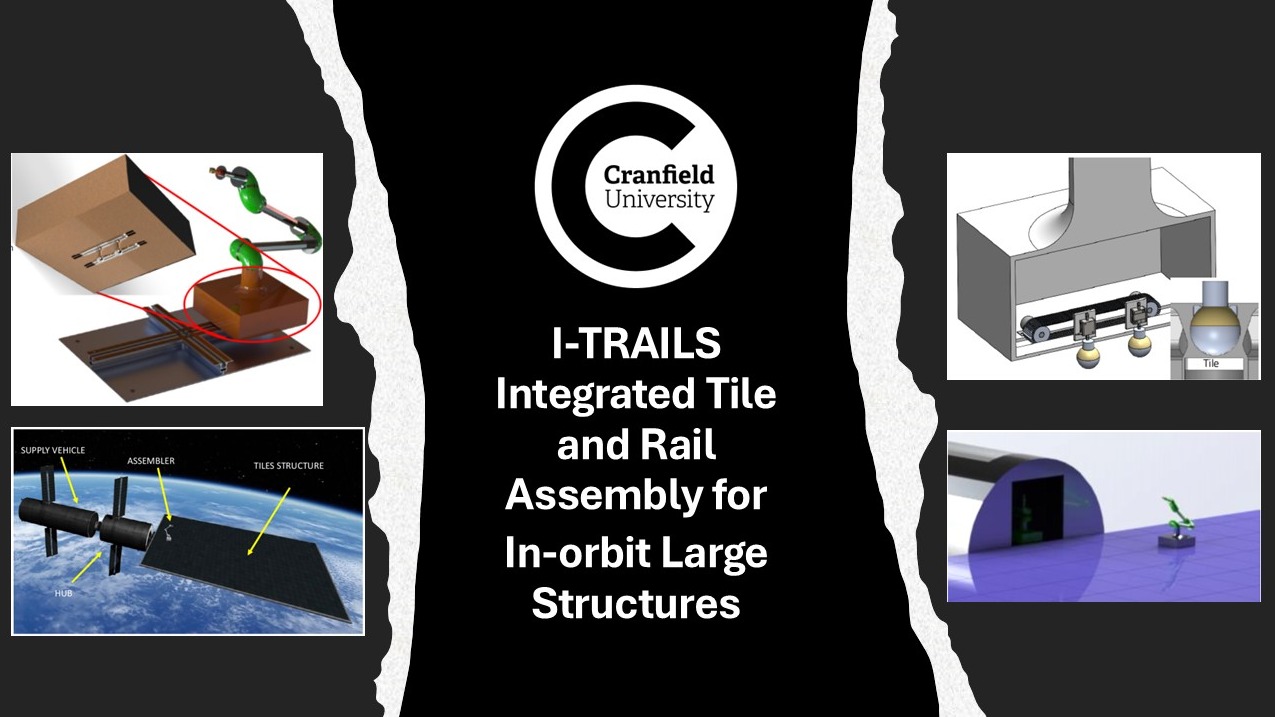Duration: 36 months
Existing approaches to Large Space Structure (LSS) assembly are hindered by some limitations. Existing proposed concepts, such as multi-arm crawling or walking robots tend to be slow-moving and generate reaction forces and vibrations that must be mitigated by the LSS attitude control system. These systems require significant time to construct LSS structures, with robots moving repeatedly between orbital depots and distant ends of the LSS. Many concepts also necessitate extra support structures—trusses, connectors, and docking points—increasing the logistical and assembly complexity, mass, and cost of the LSS.
This project proposes a modular, standardized solution to these challenges. Our approach involves developing adaptable tiles that provide both structural integrity to the LSS and a means for robotic locomotion to the assembly robots. Each tile can accommodate various payloads, such as mirrors or solar panels, and includes a built-in rail system. This rail allows assembly robots to move efficiently along the structure without additional support elements, reducing complexity and enhancing the robustness of the robotic operations. Integrated interfaces in the tiles ensure electrical, data, and mechanical connectivity across units, minimizing robotic operations for harnessing and assembly. This modular system enables rapid, cost-effective LSS assembly, with tiles that can be reconfigured or expanded to meet mission needs. Tiles are compactly stackable, easing logistics and allowing easy retrieval by assembling robots in orbit.
The project focuses on the design, prototyping, and testing of these tiles, particularly the integration of the rail system with robotic assembly processes, to optimize movement while maintaining structural and attitude stability. This streamlined LSS assembly system aims to advance the efficiency and economic viability of future LSS projects.

